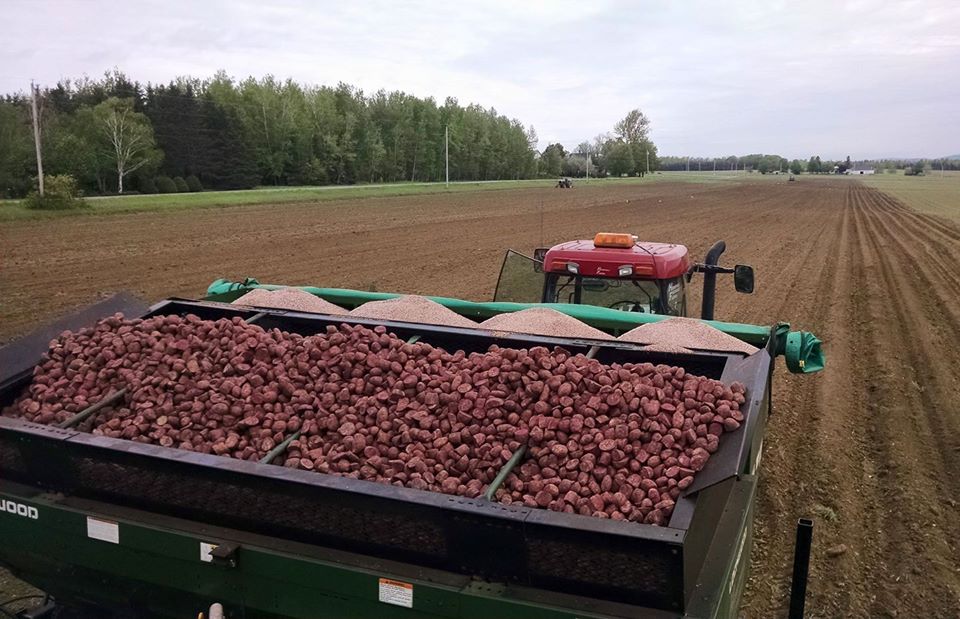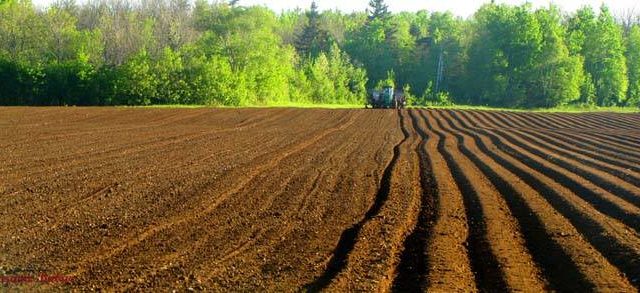
PRESQUE ISLE, Maine — With warmer summer growing months still ahead, potato farmers in northern Maine and elsewhere around the state either have finished planting or are finishing up soon.
“We hope we’ll be done by June 10,” said Garrett Hemphill of Hemphill Farms in Presque Isle, as the farm crew was about half-way finished planting 275 acres of seed potatoes that will ultimately be sold to growers of chip potatoes in other states.
Seed potatoes accounted for 22 percent of the 46,000 acres of potatoes harvested last year, according to U.S. Department of Agriculture statistics. The bulk of the crop, 67 percent, was grown for McCain Foods and other processors, and 11 percent went to the fresh cooking market.
Although the number of acres planted in potatoes has fallen by 28 percent since 2000, Maine is still among the top 10 potato-producing states.
Tim Hobbs, development and grower relations director with the Maine Potato Board, said it’s too early to know how many acres will be planted this year, but he expects it will be in the same range as last year.
The Hemphills are among the more than 100 Maine farms growing state-certified seed potatoes, who are particularly focused on tending disease-free stocks of potato populations.
He wasn’t worried about being later than other farms, explaining that, “seed potato growers can finish planting a little bit later and wait for warmer soil.”
In addition to the usual challenges of late blight and Colorado potato beetles, Maine seed potato growers have in the last few years been dealing with the emergence of an an old disease — Blackleg — caused by a relatively new bacteria known as Dickeya that can be difficult to detect until it’s too late.
Awareness of the disease sparked in 2015, when some Maryland and Pennsylvania farmers growing certified Maine seed potatoes suffered outbreaks of blackleg that claimed as much as half of their crop. The Maine Potato Board has since launched a Blackleg prevention and testing effort, with a new laboratory in Presque Isle offering disease testing to seed potato farmers among other services.
Hemphill said his farm’s seed potatoes — the varieties Atlantic, Russet, Lamoka and Waneta — have not had problems with Blackleg.
“We try to plant seed that’s clean. We haven’t heard or had any complaints,” he said.
The farm also has taken a strategy of growing some of its crop in fresh soil — in former potato fields that have been out of production for many years.
Over the past few years, Hemphill said the farm has rented about 100 acres of such land. This year, for instance, the family is growing on 40 rented acres from the former Adams family farm in Presque Isle, where the last potato crop was harvested in 1992.
The land has been grass for more than 20 years and the fields were previously all hand picked, Hemphill said. With a long rest and lots of natural nutrients, the soil in some former potato fields has proved to be highly productive, with yield improvements of 30 percent or more, Hemphill said.
“There’s a lot of rocks, but it’s worth it, especially for seed potatoes” he said.
- Workers with Bubar Brothers Farm in Fort Fairfield plant rows of potatoes on June 1, 2017. The farm, specializing in seed potatoes, started planting May 22 and finished June 2. (Courtesy of Roxanne Bubar)








